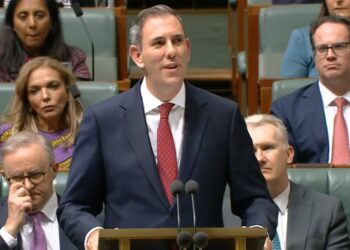Right from the moment the first Delivering Better Financial Outcomes (DBFO) legislation was passed through Parliament, Financial Services Minister Stephen Jones signalled that the next round was further away than some in the advice sector might like.
The new timeline, Jones said, was simply the vague description that it would be “developed over the second half of the year”.
Speaking on a Financial Advice Association Australia (FAAA) webinar on Thursday, chief executive Sarah Abood said it felt like progress had “stalled” on tranche two, though did note the FAAA has had some informal meetings with Treasury.
“What we have been advised is that formal consultations are due to take place shortly, and the intent is that we will see legislation for tranche two. Originally, it was around the year, and that date’s been drifting a bit,” Abood said.
“We’re now sitting in August; I don’t think we can say it’s the middle of the year anymore. The last statement we heard from the minister, I think, was this calendar year. We will have some roundtables and some formal consultation before that, though, because there are some matters in this legislation that will be quite tricky to solve.”
Delays have become something of a consistent feature for advice legislation under the current government, with concerns being raised almost as soon as it came into power.
The lengthy gap to provide a response to the Quality of Advice Review final report was the first hurdle, followed by the drawn-out process of finally getting the first tranche through Parliament. However, now time is running out for the government to get the more substantial piece of legislation passed before the next federal election.
“I’m not sure how likely we are to get that legislation passed in the current term of government,” Abood said.
“I’m hoping we’ll see the draft legislation. Everything depends on how controversial that legislation is seen to be.”
‘Dead, buried, and cremated’
While the detail for the next round of reforms is yet to be clarified, financial advisers can rest assured that the term “qualified adviser” won’t be making an appearance, with the minister now referring to the role as “NCAs”, short for new class of adviser, leading Abood to call the controversial nomenclature “dead, buried, and cremated”.
“The name is important. I’m getting lots of different feedback from members on this,” Abood said.
“Really, the big pivot point is, should adviser be in the title? There are some who are adamant that it shouldn’t be, irrespective of what their scope is or what their education is required to be. There are some who are more nuanced in that they’ll say, ‘Well, OK, if we see adviser in the title, they have to be like an apprentice adviser. They have to be able to articulate to full financial planning over time.
“In the UK, I think the term is restricted adviser, for example, or limited adviser. Other terms such as agent or associate have been put forward, and we’ve got to bear in mind, whatever the final title ends up being, it will be a protected term, most likely. Our view is that it really needs to be clear from the name that this person is offering something that is not as good and not as comprehensive as what a financial adviser can offer.”
She added that the FAAA’s focus at the upcoming roundtables on the legislation will be on the scope of what the new class of adviser will be able to offer.
“If we’ve said they can offer simple advice, how are we going to define simple? And we’ve offered a couple of ways that they could do that,” Abood said.
“One is that the best kind of scope limitation would be to say that can only advise clients on products that they already hold, because that gets rid of a whole lot of issues.”
It would also be in line with what product issuers have put forward as the type of advice they want to be able to provide, namely, answering simple questions from clients about products they hold.
“There are other positions that we could come to, so one might be, for example, they’re limited to the products of the entity that’s employing them. There are a few other problems there,” Abood said.
“We think the best outcome there would be limiting it to products clients hold.”
Turning to education requirements, the CEO made it clear that a low level of qualification, such as meeting the old RG 146, would not be adequate.
“We all saw what happened there, the notorious course off the back of the Corn Flakes box. You don’t want to go back there,” Abood said.
“Our position is that this needs to articulate to a financial planning degree. If someone is starting a course, it might be a [graduate diploma], it might be a year of education at tertiary level, then that means they can go on to become a financial adviser.
“That’s our potential big win out of this, that we get a pool of people created who have the skills and capabilities, and some of the knowledge at least that they need to become great financial advisers in the future.
“We only had 317 new entrants last year. We really have to turn that around so that education articulates to a full degree. It also needs to be sufficient to ensure that they can give advice to the client in their best interests.”




“We all saw what happened there, the notorious course off the back of the Corn Flakes box. You don’t want to go back there,” Abood added.
The more I hear Abood speaking – the more I realize how much she is not qualified to speak at all.
Why does this need to be said? RG-146 was not a joke of a qualification and definitely not completed on the back of a cereal box. I spent tens of hours completing the course with hundreds of pages, digesting the data, navigating complexity between superannuation, tax, risk insurance, WTF are you talking about?
If you found RG146 challenging (and if that’s all you have) then you shouldn’t be an Adviser.
We all get caught up with our world Financial Adviser etc., only about 17% of the population use us. The term will probably land at something like “Superannuation consultant” or “Retirement planner” and the masses will have no problem taking advice from them at their respective Super funds.
Just like the old days – all paid for by the product? Will ASIC worry about conflicted advice causing consumer detriment? What happened to “Consumer expectations”? It all sounds like old commissions now paying a salaried advise provider? Could be wrong.
Simple solution: remove Financial Advice from the corps act and establish a new framework (rather than try and rework the existing) much the same as Accounting, but only for those Advisers who are actually qualified and have completed all the work required to be a professional. Leave all other super funds reps etc inside the corps act.
The very minute the word ” Adviser ” is included within any term, the client or Super Fund member will hear ” Adviser” and will assume that individual is providing advice in that person’s best interest when despite every disclaimer under the sun, the interpretation will be as above.
The term needs be identified as a Product Representative with the term “Adviser”, nowhere to be seen.
It’s funny how we never got to find out the name of the individual in Govt who came up with the brilliant term of “Qualified Adviser” when the question was first asked some time ago!!!
Who came up with the term “Qualified Adviser” – I guarantee it was someone in Industry Super – most probably their Strategy Manager, much like this submission……..https://treasury.gov.au/sites/default/files/2020-01/industry_super_network_0.pdf
I understand the delays are costly and frustrating for financial adviser. However, it is better Government does not rush into anything without careful consideration and consultation to minimize opportunities for more problems than what is already there, especially what might be “tricky to solve.”
It’s August 2024 – rush in?
Rush into things, like the dumb name of “qualified adviser”?
Normally I would agree, but Jones has a track record here, I suspect we won’t see anything before next year’s election.
Jones has been promising fixes to the hot mess since well before the last election. By the time of the next election the only substantive change during his tenure will have been massive increases in govt charges imposed directly on advisers (and indirectly on consumers) via ASIC and CSLR.
Why was there no “careful consideration and consultation” in relation to ASIC fees and CSLR? The same reason there has been no solution to the hot mess within a reasonable time. Because Jones is conflicted and incompetent.
ah, round tables with Treasury, the very people who have re-ordered the 7 steps of scientific method to the following:
1. conclusion
2. hypothesis (that supports pre-determined conclusion)
3. question (that supports pre-determined conclusion)
4. data analysis (that supports pre-determined conclusion)
5. research (that supports pre-determined conclusion)
6. communication
7. experiment
Could it be they are waiting for the FCA to finalise their review consultation given the collaboration agreements that exist between regulators